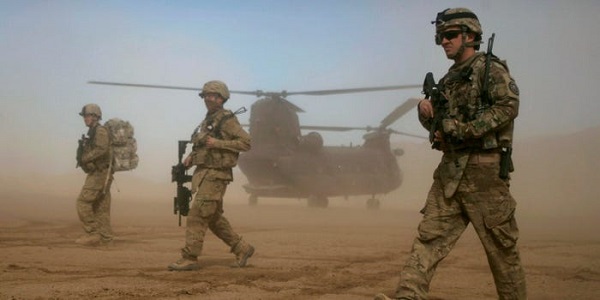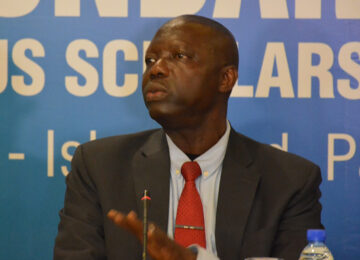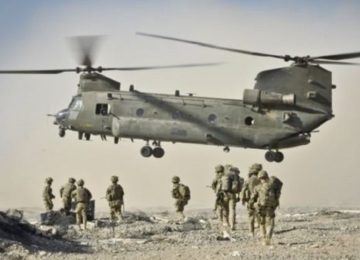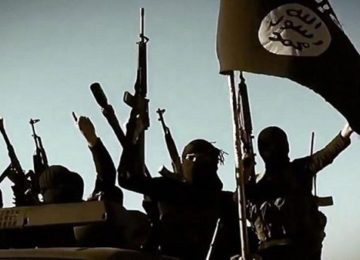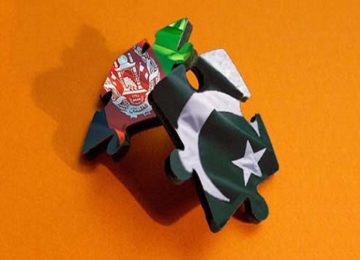August 26, 2021
Ambassador Ryan C. Crocker, who has been the US ambassador to Afghanistan, Iraq, Pakistan, Syria, Kuwait and Lebanon, recently wrote a piece for the New York Times explaining how US failed in Afghanistan due to a lack of strategic patience. Though US put in a lot of effective planning, and money in Afghanistan, Biden’s fumbling of Afghanistan withdrawal along with other problems like corruption gained US a loss in the longest war it fought. He also notes that US lost Pakistan’s trust after 9/11 due to which Pakistan started supporting Taliban, it took US a long time to regain Pakistan’s trust, which it has now once again lost. He claims that all the cards are in Taliban’s hands now and only they will decide the fate of Afghanistan, while US will slowly move out of the picture. The complete opinion piece is given below:
As Americans, we have many strengths, but strategic patience is not among them. We have been able to summon it at critical times such as the Revolutionary War and World War II, where, for example, Congress did not threaten to defund the war effort if it wasn’t wrapped up by 1944. In Korea, nearly seven decades after an inconclusive truce, we still have about 28,000 troops. But our patience is not the norm. And it certainly has not been on display in Afghanistan as the world watched the Taliban storm into Kabul.
As the enormity of the events in Afghanistan this past week sinks in, the questions start. How did this happen? How could we not have foreseen it? Why didn’t Afghan security forces put up a fight? Why didn’t we do something about corruption? The list goes on. There is one overarching answer: our lack of strategic patience at critical moments, including from President Biden. It has damaged our alliances, emboldened our adversaries and increased the risk to our own security. It has also flouted 20 years of work and sacrifice.
The United States’ objective in Afghanistan has always been clear: to ensure that Afghan soil is never again used to plan attacks against the American homeland. It was not about nation building as an end in itself, or building a new democracy, or even regime change. The message from the Bush administration to the Taliban after 9/11 made this clear: If you hand over Al Qaeda leadership, we will leave you alone. The Taliban chose to fight instead. Once the Taliban were defeated, our fundamental mission of ensuring that Afghanistan was never again the base for an attack on the United States did not change. But the means to that end became much more complex. And the development of those means would require patience.
When I arrived at Bagram Air Base in January 2002 to take charge of our reopened embassy, Afghanistan had nothing: essentially no government, no institutions, no army, no police — just a yawning vacuum, and vacuums in the greater Middle East tend to be filled by actors who do not wish us well. Hamid Karzai had arrived in Kabul just a few days before me as chairman of the Afghanistan Interim Authority. He and I spent a lot of time together in those initial weeks. He never seemed discouraged by the enormity of the task in front of him. He did not hesitate to make decisions, many good, some not so much. He had a vision of a stable and secure Afghanistan that threatened no one. It would be a long process, but he said he had the patience for it.
So did we, at least initially. Helping Afghans create a stable, open society could also be the best way to further our own national security objectives. This concept had strong bipartisan support on the Hill, as a wave of congressional visitors to Kabul would attest. The first of that wave was the chairman of the Senate Foreign Relations Committee, Joe Biden. We visited a girls’ school that had just opened thanks to U.S.A.I.D. Chairman Biden was a strong supporter. He understood the importance of societal change, and he understood that it takes time and requires patience. While statistics in Afghanistan have never been reliable, U.S.A.I.D. estimates that when the Taliban were defeated, there were some 900,000 children in school, all of them boys. When I left as ambassador in 2012, a decade after that first school visit, the number of students was nearly 8 million, about 37 percent girls. It is important to note that this progress was not by any means exclusively the result of U.S. or other international efforts. Afghans on their own launched private initiatives in education, especially for girls.
Clearly, there were also problems, chief among them corruption. Karzai, and later President Ashraf Ghani, presided over governments where corruption was rampant. When vast resources are poured into a country without established institutions and rule of law, corruption is likely to be a significant byproduct. This is not to excuse corrupt officials. It is to recognize the ubiquity of the problem and our role in it. A look at our own history is instructive. Corruption was endemic in New York, Boston and Chicago through much of the 19th and into the 20th centuries. It took us time to grow the institutions and legal structures that would eventually make corruption the exception rather than the norm.
And that returns me again to the central theme: time and patience. As our own history attests, societal change is a slow process. Witness the 11 years our new country spent moving from the Declaration of Independence to the Constitution. Even then, issues like slavery were papered over, only to erupt in a civil war 74 years later. Yet we seem unable to appreciate that other societies will find the challenge just as difficult and even more so if the engine of change is a foreign army.
I recall the comment attributed to a captured Taliban fighter from a number of years ago: You Americans have the watches, but we have the time. Sadly that view proved accurate — the Taliban outlasted us and our impatience. After the Soviet defeat in Afghanistan at the hands of U.S.-trained and armed mujahedeen in 1989, training that was facilitated by Pakistan, we decided we were done. We could see the Afghan civil war coming — the only thing holding the disparate Afghan groups together was a common enemy. But that was not our problem — we were leaving. On the way out, we stopped helping Pakistan in a key way: We ended security and economic assistance because of its nuclear weapons program, something we’d exempted before. So Pakistan, in its own narrative, went from being the most allied of allies to the most sanctioned of adversaries. That is why Pakistan threw its support to the Taliban when they started gaining ground in the 1990s: It could end a dangerous conflict along Pakistan’s own unstable borders.
And that is why a decade later after 9/11, Pakistan welcomed the return of the United States — and U.S. assistance. It would work with us against Al Qaeda. But we soon learned that the Taliban were a sticky matter. I was ambassador to Pakistan from 2004 to 2007. I pushed Pakistani officials repeatedly on the need to deny the Taliban safe havens. The answer I got back over time went like this: “We know you. We know you don’t have patience for the long fight. We know the day will come when you just get tired and go home — it’s what you do. But we aren’t going anywhere — this is where we live. So, if you think we are going to turn the Taliban into a mortal enemy, you are completely crazy.”
We have again validated their skepticism.
The Washington Post notes that “as the Taliban swept across neighboring Afghanistan, some Pakistanis saw it as a reason to celebrate.” Yet I doubt there are many high fives being exchanged in Islamabad today. The American disaster in Afghanistan that Mr. Biden’s impatience brought about is not a disaster just for us. It has also been a huge boost for the Taliban, whose narrative now is that the believers, clad in the armor of the one true faith, have vanquished the infidels. That is resonating around the world, and certainly next door in Pakistan where the T.T.P. — the Pakistani Taliban, which seeks the overthrow of their government — has certainly been emboldened, as have Kashmiri militant groups created by Pakistan but that threaten Pakistan itself as well as India. Mr. Biden’s strategic impatience has given a huge boost to militant Islam everywhere.
We need to be engaged with Pakistan on ways to assess and deal with this enhanced threat. The prospect of violent destabilization of a country with about 210 million people and nuclear weapons is not a pretty one. The same is true in Iran. It’s always good to see the Great Satan take a kick in the face, and it’s worth a little gloating, but the Islamic Republic and the Taliban’s Islamic Emirate almost went to war in 1998. A region is worried, and it is right to be so.
It was not only the current president showing impatience. President Donald Trump announced that peace talks would convene in Qatar between the United States and the Taliban. But those took place without the Afghan government. We had caved on a longstanding Taliban condition. We therefore delegitimized the government we had pledged to support. The Taliban did eventually allow government representatives into the room, but the talks went nowhere. As that painful process unfolded, we added injury to insult, forcing the Kabul government to release 5,000 Taliban prisoners.
That didn’t matter to Mr. Trump. He was done with patience and just wanted out, whatever the consequences. He reached an agreement with the Taliban for that complete withdrawal, but left office before he could execute it.
Enter Mr. Biden. To my shock, he embraced Mr. Trump’s Afghanistan policy. We have betrayed our promises to interpreters, women and children, and others who are now trapped in an Afghanistan controlled by the Taliban. I fear many will lose their lives because of Mr. Biden’s impatience. We had their backs. Until Mr. Biden decided we didn’t. They will pay for it.
It did not have to be this way. When I left Afghanistan as ambassador in 2012, we had about 85,000 troops in the country. The Taliban controlled none of Afghanistan’s 34 provincial capitals. When President Barack Obama left office there were fewer than 10,000 U.S. troops. And when Mr. Trump departed there were fewer than 5,000. The Taliban still did not hold any major urban area. Now, they hold the entire country. What changed so swiftly and completely? We did. Mr. Biden’s decision to withdraw all U.S. forces destroyed an affordable status quo that could have lasted indefinitely at a minimum cost in blood and treasure. Even with a full withdrawal, we might have managed steps that would have protected our interests. The ranking member of the House Foreign Affairs Committee, Michael McCaul, and I suggested how in these pages a few months ago.
Now, the Taliban hold all the cards. They will determine whether evacuations through the Kabul airport can proceed. And whatever happens next, the image of this American capitulation is already etched indelibly in the world’s imagination. It is that U.S. Air Force C-17 taxiing for takeoff from Kabul surrounded by a desperate Afghan mob. Seconds later, at least one man falls to his death from the plane’s wheel well. It is eerily reminiscent of the people who jumped from the World Trade Center on 9/11 rather than face death by fire. What a tragic and painful circle it closes two decades later.



